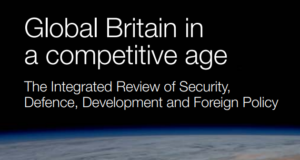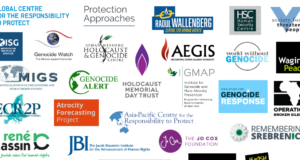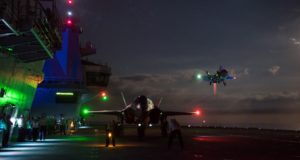The Humanitarian Intervention Centre welcomes the findings of the United Nations report on the chemical weapons attack on the Damascus suburb of East Ghouta on 21st August 2013, though the time wasted and lives lost between now and the first intelligence reports published by the US, UK, Israel, France, Turkey, Germany and others should be noted.
The thorough UN investigation has established beyond any reasonable doubt that President Bashar al-Assad carried out the most vicious WMD attack on a civilian population this century has seen. He laughed in the face of the international community by gassing his own people under the noses of UN inspectors, who were present in Syria to investigate previous allegations of chemical weapons use in Khan al-Assal.
In the light of recent developments, the much-vaunted Russian plan to secure, remove and destroy Assad’s chemical weapons is impractical and inappropriate. It is the equivalent of a gunman committing multiple murders, and the maximum punishment to befall him is for his gun to be confiscated. For the sake of justice, international stability and the deterrence of further use of WMD on civilians by other dictators, intervention is a moral and strategic imperative.
Executive Director of the HIC, Julie Lenarz, said: “First and foremost, we must continue to work with the United States, France, the Arab League and our NATO allies to assess the requirements for a military strike against the Assad regime, which has lost all sovereignty. Secondly, close cooperation with Turkey and Jordan is required to build a strong, centralised FSA command capable of attacking Damascus from the North and South and seizing control over other major cities, such as Homs, Deraa and Qusayr. And, finally, careful consideration should be given to the establishment of a no-fly zone over the Western part and humanitarian corridors in the North-Western part of the country.”
HIC Senior Fellow, Jacob Campbell, pointed out the significance of the Iranian connection: “Not nearly enough attention has been paid to the role of Iran in all of this. Reports from inside Syria indicate that the Ba’athist regime in Damascus has more or less ceased to exist as an autonomous actor, and that the country’s real rulers now are Qasem Soleimani and the Islamic Revolutionary Guard Corps. So it is inconceivable that Assad would have ordered the most deadly chemical attack since Halabja without the consent – perhaps even the encouragement – of the mullahs in Tehran. This is the nature of what the US State Department has identified as the world’s most active state sponsor of international terrorism – determined, desperate and diabolical; willing and able to gas to death hundreds of children in their beds in the pursuit of its imperial ambitions. And if that does not stir us into action, what will?”
The Humanitarian Intervention Centre calls on the UN to abandon its coffee shop approach to preventing, stopping and punishing what is now becoming a genocidal campaign, and to take active measures against the Assad regime if it is to retain any of its credibility as the prime international institution.
 Human Security Centre Human Rights and International Security Research
Human Security Centre Human Rights and International Security Research




